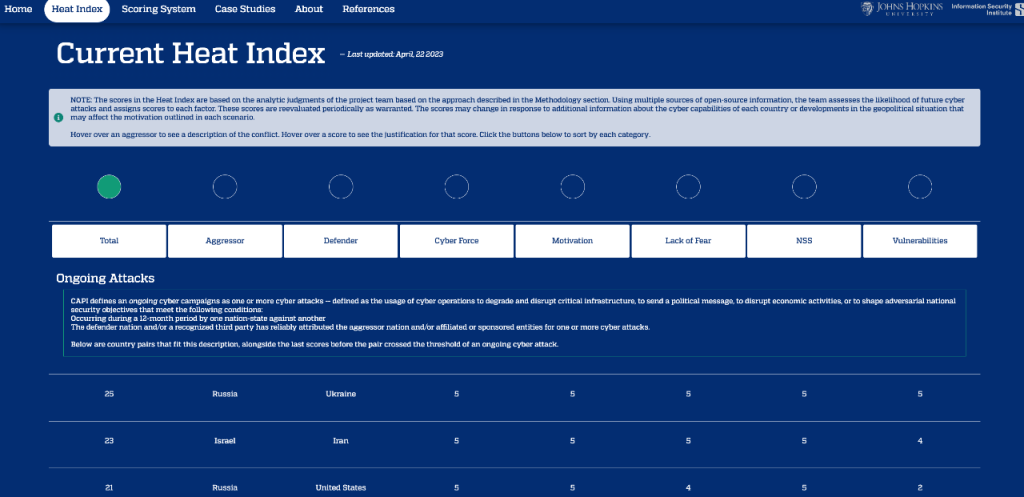Cyber Attack Predictive Index
Team: Cyber Attack Predictive Index Student Advisory Board
Program:
Computer Science
Project Description:
Cyber attacks by one country against another are a recurring feature of 21st-century geopolitics. Nation-states have used cyberspace for espionage and other functions since the dawn of the cyber age, and some have also used cyberspace for destructive purposes. While earlier visions of “cyber war” have not yet materialized, governments have used cyber attacks to achieve political, economic, and military goals faster and more effectively than is possible through traditional diplomacy, economic sanctions, or military operations and with fewer repercussions. The use of cyber operations to degrade and disrupt critical infrastructure, send a political message, disrupt economic activities, or shape adversarial national security objectives has led to a new type of conflict among nation-states. As more countries develop cyber capabilities, cyber-attacks are likely to become more common in international relations.
A group of faculty and students at Johns Hopkins University has come together to develop this project and the resulting Cyber Attack Predictive Index (CAPI). The predictive analysis is based on identifying common factors in select cyber attacks among nation-states over the past 15 years; we have scored those factors according to a set of consistent criteria.
The CAPI Board of project stakeholders meets regularly to discuss hot-spots around the world that have implications for likely cyber conflict and to present additions, deletions, and updates to the CAPI Heat Index.
Our goal is to present an approach that yields a tool to help understand why nation-states engage in cyber conflict, and also to serve as a barometer for predicting future cyber attacks.
Team Members
-
[foreach 357]
[if 397 not_equal=””][/if 397][395]
[/foreach 357]
Project Mentors, Sponsors, and Partners
Anton Dahbura
Terry Thompson
Course Faculty
-
[foreach 429]
[if 433 not_equal=””][/if 433][431]
[/foreach 429]
Project Links
Additional Project Information
Project Photo



